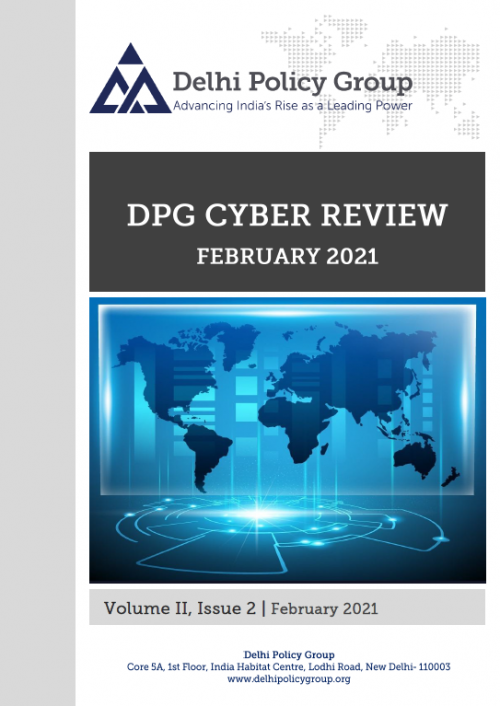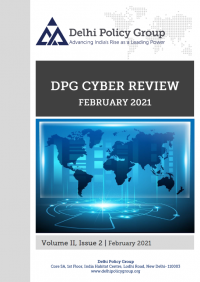Volume 2, Issue 2
Date: March 03, 2021
By
The start of 2021 has seen a spurt in unilateral actions by social media platforms in determining their privacy and content rules, in disregard of national laws. In the Indian context, the reluctance of Twitter to block posts responsible for inciting violence on January 26 and the adoption of new privacy rules by WhatsApp have been particularly significant.
To regulate these platforms, the Indian government has notified ‘The Information Technology (Intermediary Guidelines and Digital Media Ethics Code) Rules 2021’, which mandates requirements of due diligence, adherence to the Indian Constitution and to the rule of law.
India saw the second largest (after Japan) number of cyberattacks among Asia Pacific in 2020, most of them directed at the finance and insurance sectors. In response, multi-pronged efforts are being made by national regulators to address digital fraud.
The Indian government has eased regulations governing the acquisition and application of geospatial data. Maps/Geospatial Data finer than one meter accuracy can only be created and/or owned by Indian Entities and must be stored and processed in India for better data security. Simultaneously, the Department of Space has signed a memorandum of understanding with the digital mapping company MapmyIndia to offer a fully indigenous mapping portal and geospatial services.
On the international front, the US authorities are continuing investigations of the SolarWinds hack. The Biden NSC has outlined measures for addressing security gaps, and technology companies are also discussing measures to deal effectively with cyber-attacks.
Australia passed a ‘News Media and Digital Platforms Mandatory Bargaining Code Bill 2020’ on February 25, generating a global tussle between the social media and news media companies regarding payment for news content hosted on digital platforms.
Technology standards are gaining urgency as rules are being decided for emerging technologies dependent on 5G networks, driverless vehicles, smart cities and the Internet of Things. China has been dominating in this field and is planning to soon unveil China Standards 2035. A group of 12 techno-democracies (T-12), including India, is being proposed to collaborate in setting standards to curb China’s dominance.
To regulate these platforms, the Indian government has notified ‘The Information Technology (Intermediary Guidelines and Digital Media Ethics Code) Rules 2021’, which mandates requirements of due diligence, adherence to the Indian Constitution and to the rule of law.
India saw the second largest (after Japan) number of cyberattacks among Asia Pacific in 2020, most of them directed at the finance and insurance sectors. In response, multi-pronged efforts are being made by national regulators to address digital fraud.
The Indian government has eased regulations governing the acquisition and application of geospatial data. Maps/Geospatial Data finer than one meter accuracy can only be created and/or owned by Indian Entities and must be stored and processed in India for better data security. Simultaneously, the Department of Space has signed a memorandum of understanding with the digital mapping company MapmyIndia to offer a fully indigenous mapping portal and geospatial services.
On the international front, the US authorities are continuing investigations of the SolarWinds hack. The Biden NSC has outlined measures for addressing security gaps, and technology companies are also discussing measures to deal effectively with cyber-attacks.
Australia passed a ‘News Media and Digital Platforms Mandatory Bargaining Code Bill 2020’ on February 25, generating a global tussle between the social media and news media companies regarding payment for news content hosted on digital platforms.
Technology standards are gaining urgency as rules are being decided for emerging technologies dependent on 5G networks, driverless vehicles, smart cities and the Internet of Things. China has been dominating in this field and is planning to soon unveil China Standards 2035. A group of 12 techno-democracies (T-12), including India, is being proposed to collaborate in setting standards to curb China’s dominance.



